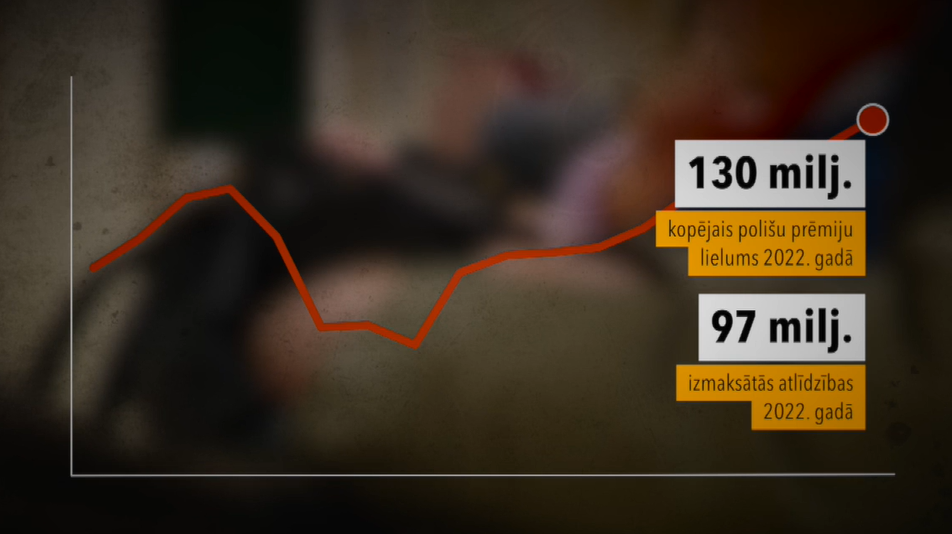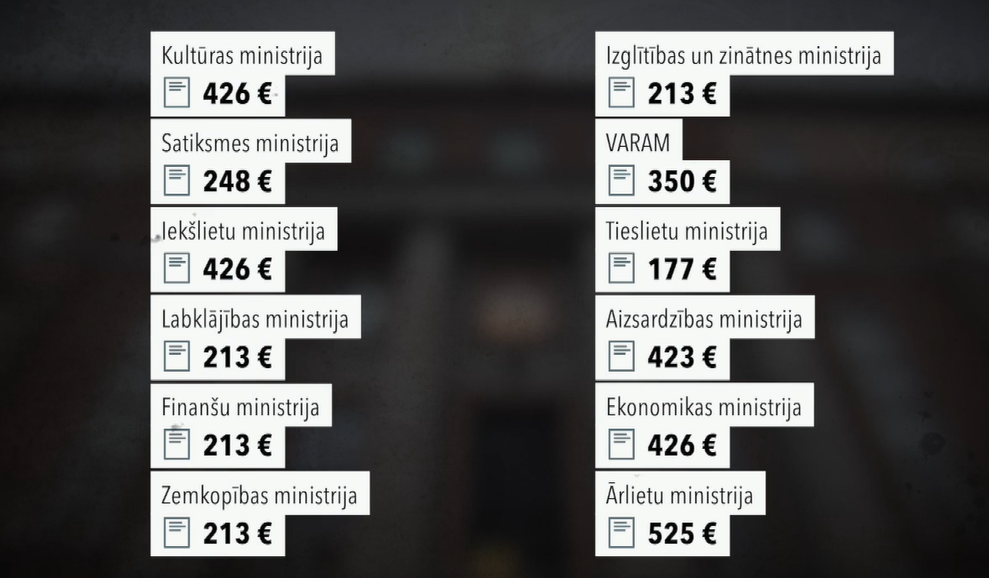In 2012, there were approximately 165,000 persons with private health insurance in Latvia. By 2022, that number had grown to approximately 450,000 in a total population of 1.9 million.
Jānis Abāšins, president of the Association of Latvian Insurers, explains this with the fact that "there is a permanent state of shortage in state healthcare".
"If public healthcare was marvellous and perfect, without queues, then private health insurance would either not exist or would be much smaller," said Abāšins, adding that health insurance in Latvia accounts for approximately 20% of the entire insurance market, while in Lithuania and Estonia it is only 2 to 3%.

The range of paid services depends on the price of the policy, and Abāšins admitted that a policy for 100 euros per year "includes almost nothing", but "a reasonable policy costs about 300-400 euros", while a "luxury" program policy will cost something like 500-700 euros.
Currently, out of approximately 450,000 insured, more than 300,000 are employees of private companies, and currently a health insurance policy is one of the most popular incentives employers can offer potential employees.
Patchy coverage
Approximately 135,000 insured persons are employees of state or local government institutions. State and municipal institutions may buy policies, but this is not a mandatory obligation, and each institution or municipality is free to make its own arrangements, leading to a situation in which for example people doing the same job in different municipalities could have very different private healthcare provision, or none at all.
For several years, policies in the public sector could not be more expensive than 213 euros, but from July of last year, this norm has been abolished, and now the maximum price of a policy can be 426 euros, which is the maximum amount for which personal income tax is not applied.

"Forbidden method" compared the policies in place at all government ministries and saw considerable variation in prices, ranging from EUR 525 at the Foreign Ministry to EUR 177 at the Justice Ministry.
Similarly, the investigation copared the private healthcare provision for teachers in different municipalities and saw wide divergences. In many cases only a very basic form of cover is provided, with employees responsible for paying additional surcharges themselves to get many forms of treatment. There were also quite a few municipalities with no private healthcare provision at all, and others with lopsided arrangements – for example in Valka region, teachers do not have policies, but heads of parish administrations, janitors, security guards, firemen and cemetery managers do.
Doctors without health insurance
There are also no health insurance policies for the employees, doctors or other personnel of the two largest hospitals in Latvia – Riga Eastern Clinical University Hospital (RAKUS) and Pauls Stradiņš Clinical University Hospital.
The Ministry of Health told the program that hospitals, rather than the Ministry, should be asked about health insurance for hospital employees, because they are not state administrative institutions, but capital companies. It is true that the Ministry of Health is the owner of both of these capital companies.
RAKUS personnel director Evita Dulbinska explained that "right now, the hospital cannot afford to buy health insurance policies due to limited financial resources, but we have realized that there is such a need", and "the hospital's board will look for financial opportunities to ensure it".
It is true that RAKUS employees have several discounts on health care services, for example, a 50% discount on laboratory examinations, also on rehabilitation, and discounts on paid day care.
Rinalds Muciņš, the chairman of the board of Pauls Stradiņš Clinical University Hospital, similarly explained that there are no policies for the employees, because "this is a financial limitation at the moment. We have not found a source of resources for this, because the hospital is working with a deficit, and our priority right now is to invest in salaries, not other benefits for employees".
"We are thinking about it, but still we cannot find the financial resources for it," Mucins said.
Both hospitals suggested that it would be good if the state tried to set some uniform criteria.
But when asked to comment on the fact that employees of the Ministry of Health have policies, but doctors do not, Muciņš replied with a sigh that "here we come to more of an ethical issue".
"I can only express my personal opinion. Of course, there should be a common standard, but then there is the question – if the state buys for one part of its population, which is the employees of public institutions, capital companies... Why doesn't the state buy such policies for others? There are many questions here," said Muciņš.



























